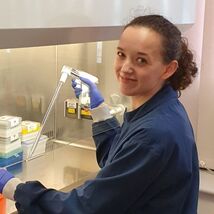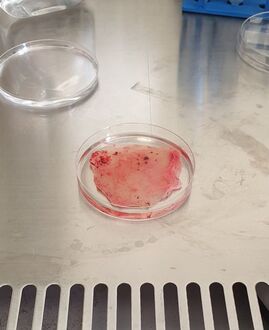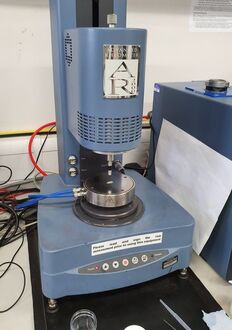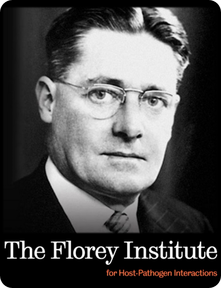
Organisms like Group B Streptococcus are thought to contribute to the premature rupture of the foetal membranes (this is the term for when “waters have broken”). One part of my project is a collaboration with Chris Holland, head of the Natural Materials group. We are testing the physical properties of the foetal membranes with and without exposure to infection to see if these organisms can alter the tissue.
| A sample of human foetal tissue, grown in a petri dish | A rheometer is used to measure the stiffness of a small sample of foetal membrane. |
Our aim is to better understand the mechanisms of infection associated preterm birth and to identify better methods of prediction to help the millions of babies born prematurely, around the world every year.


